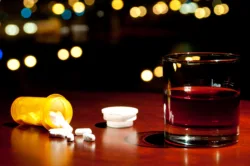Signs of Drug Abuse in Your Teen

No parent should worry about their child struggling with substance use. Unfortunately, though, this is a reality for many parents. If you’re worried that your teen is struggling with substance abuse or are eager to prevent it in the first place, you’ve come to the right place.
In this article, we’ll explore the roots of teen drug abuse, signs that your teen might be using substances and the research around what makes treatment effective.
How does addiction happen?
The National Institute on Drug Abuse describes the process of addiction as the way brain functioning changes as substances are used repeatedly over time. While the first few uses of drugs or alcohol may be voluntary, addiction quickly takes away individual agency.
How does this occur? Essentially the feel-good chemicals released when a substance is consumed rewire a person’s brain circuitry until the behavior becomes compulsive despite negative consequences. The brain is focused on the good and impulses to repeat the substance use become overwhelming.
This rewired brain circuitry impacts the prefrontal cortex, the area of the brain that is responsible for decision-making, self-control and appropriately gauging situations. Drugs in the brain dull these senses so every time there’s an opportunity to use drugs, it’s harder to resist.
This rational area of the brain is underdeveloped in adolescents. The emotional part of the brain, the amygdala, is more active, meaning teens are more prone to make choices based on feelings rather than logic. This is why teaching teens about the social pressure to use drugs is so important.
What causes addiction?
Scientists and parents alike are desperate to find answers to the source of addiction. After decades of research, it has become clear that there isn’t a single cause for addiction or even several of them.
There are potentially dozens of factors that compile and play a part in the onset of addiction, and these are called risk factors. Here are the most common risk factors for teen drug abuse, according to Youth.gov.
- Prenatal drug and alcohol exposure
- Poor communication and self-regulation
- Parental drug and alcohol abuse
- Insecure parental attachment
- Poor impulse control
- Low parental involvement
- Anxiety
- Depression
- Anti-social behavior
- Early exposure to substances
- Behavioral problems
- Parental attitudes toward substances
- Poor academic performance
- Peer attitudes toward substances
- Low socioeconomic status
This list of factors that can contribute to substances is by no means exhaustive. Reducing these risk factors and building on protective factors can make a difference in helping a teen in recovery or preventing drug abuse in the first place.
What are the signs of teen drug abuse?
You may have an inkling that your teen is using substances as an attempt to relieve stress or impress peers, but how do you know when using drugs once in a social setting has escalated to a full-fledged addiction? Here are signs to look for.
- Appearing to have uncontrollable urges to use a drug
- Stealing money to pay for the drug
- Participating in risky behaviors in exchange for a drug (partying, sexual behaviors, etc)
- Changes in friend groups
- Decreased interest in activities that used to be enjoyable
- Sudden or intense changes in appetite or sleep
- Odors, stains or drug paraphernalia
- Becoming defensive when asked about drug use
- Sneaky behavior
- Appearing paranoid or on-edge
- Emotional changes
- Difficulty concentrating or completing tasks
- Red eyes
- Runny nose
- Somatic complaints (like headaches, stomachaches, etc)
No one knows your teen better than you do, so use your intuition when it comes to having a conversation about teen drug abuse. Even if the behaviors you’re noticing aren’t on this list, it’s worth having a conversation.
How is teen drug addiction treated?
It may seem that drug addiction treatment for teens is the same as treatment for adults. However, studies show that services for recovery are not one-size-fits-all. Treatment for teens is more effective when it is adjusted for the appropriate age group.
When you’re looking for rehab programs for teens, there are other features to look out for. The journal Current Psychiatric Reports states four evidence-based factors of treatment that are most indicative of success in decreasing substance use.
- Adolescent-specific treatment
- The variety of therapeutic modalities
- Relapse and recovery statistics
- Quality research and assessment
When you’re searching for top-notch care for your teen, these four features can guide your search. Keep an eye out for holistic treatment that includes a variety of activities like yoga, outdoor therapy, art therapy and more. Most programs also have success rates available and will be accredited for quality programs.
When you’re ready to access care for your loved one, check out Pyramid Healthcare. Personalized treatment plans in a judgment-free environment can get your teen or young adult back on the right track for a successful, healthy and happy life. Get in touch today.
No parent should worry about their child struggling with substance use. Unfortunately, though, this is a reality for many parents. If you’re worried that your teen is struggling with substance abuse or are eager to prevent it in the first place, you’ve come to the right place.
In this article, we’ll explore the roots of teen drug abuse, signs that your teen might be using substances and the research around what makes treatment effective.
How does addiction happen?
The National Institute on Drug Abuse describes the process of addiction as the way brain functioning changes as substances are used repeatedly over time. While the first few uses of drugs or alcohol may be voluntary, addiction quickly takes away individual agency.
How does this occur? Essentially the feel-good chemicals released when a substance is consumed rewire a person’s brain circuitry until the behavior becomes compulsive despite negative consequences. The brain is focused on the good and impulses to repeat the substance use become overwhelming.
This rewired brain circuitry impacts the prefrontal cortex, the area of the brain that is responsible for decision-making, self-control and appropriately gauging situations. Drugs in the brain dull these senses so every time there’s an opportunity to use drugs, it’s harder to resist.
This rational area of the brain is underdeveloped in adolescents. The emotional part of the brain, the amygdala, is more active, meaning teens are more prone to make choices based on feelings rather than logic. This is why teaching teens about the social pressure to use drugs is so important.
What causes addiction?
Scientists and parents alike are desperate to find answers to the source of addiction. After decades of research, it has become clear that there isn’t a single cause for addiction or even several of them.
There are potentially dozens of factors that compile and play a part in the onset of addiction, and these are called risk factors. Here are the most common risk factors for teen drug abuse, according to Youth.gov.
- Prenatal drug and alcohol exposure
- Poor communication and self-regulation
- Parental drug and alcohol abuse
- Insecure parental attachment
- Poor impulse control
- Low parental involvement
- Anxiety
- Depression
- Anti-social behavior
- Early exposure to substances
- Behavioral problems
- Parental attitudes toward substances
- Poor academic performance
- Peer attitudes toward substances
- Low socioeconomic status
This list of factors that can contribute to substances is by no means exhaustive. Reducing these risk factors and building on protective factors can make a difference in helping a teen in recovery or preventing drug abuse in the first place.
What are the signs of teen drug abuse?
You may have an inkling that your teen is using substances as an attempt to relieve stress or impress peers, but how do you know when using drugs once in a social setting has escalated to a full-fledged addiction? Here are signs to look for.
- Appearing to have uncontrollable urges to use a drug
- Stealing money to pay for the drug
- Participating in risky behaviors in exchange for a drug (partying, sexual behaviors, etc)
- Changes in friend groups
- Decreased interest in activities that used to be enjoyable
- Sudden or intense changes in appetite or sleep
- Odors, stains or drug paraphernalia
- Becoming defensive when asked about drug use
- Sneaky behavior
- Appearing paranoid or on-edge
- Emotional changes
- Difficulty concentrating or completing tasks
- Red eyes
- Runny nose
- Somatic complaints (like headaches, stomachaches, etc)
No one knows your teen better than you do, so use your intuition when it comes to having a conversation about teen drug abuse. Even if the behaviors you’re noticing aren’t on this list, it’s worth having a conversation.
How is teen drug addiction treated?
It may seem that drug addiction treatment for teens is the same as treatment for adults. However, studies show that services for recovery are not one-size-fits-all. Treatment for teens is more effective when it is adjusted for the appropriate age group.
When you’re looking for rehab programs for teens, there are other features to look out for. The journal Current Psychiatric Reports states four evidence-based factors of treatment that are most indicative of success in decreasing substance use.
- Adolescent-specific treatment
- The variety of therapeutic modalities
- Relapse and recovery statistics
- Quality research and assessment
When you’re searching for top-notch care for your teen, these four features can guide your search. Keep an eye out for holistic treatment that includes a variety of activities like yoga, outdoor therapy, art therapy and more. Most programs also have success rates available and will be accredited for quality programs.
When you’re ready to access care for your loved one, check out Pyramid Healthcare. Personalized treatment plans in a judgment-free environment can get your teen or young adult back on the right track for a successful, healthy and happy life. Get in touch today.







